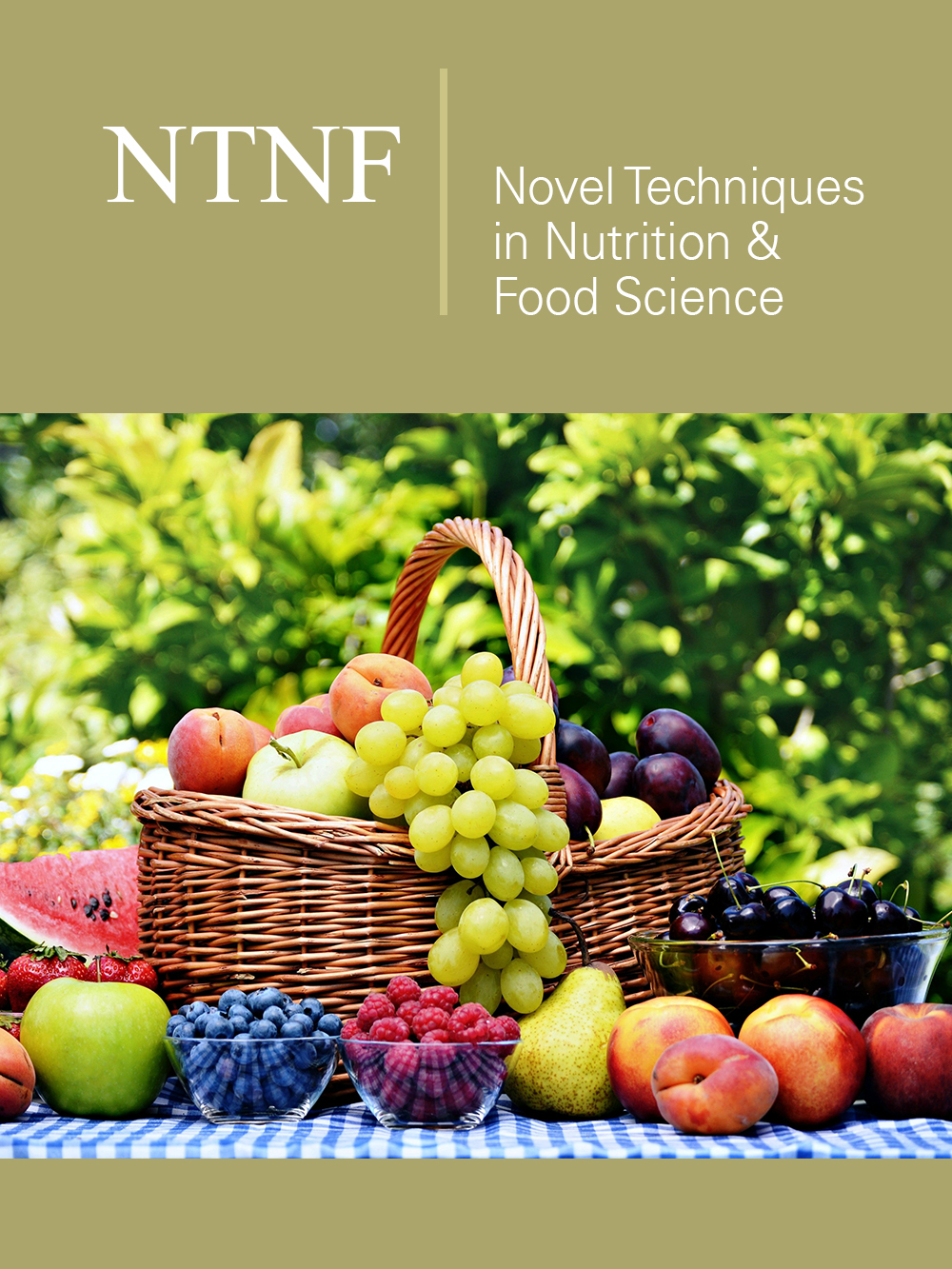- Submissions

Full Text
Novel Techniques in Nutrition and Food Science
Recommendations of Russian Nutritionalists During the Covid-19 Era
Irina Polyanskaya*
Department of Hygienic Engineering and Design, Russia
*Corresponding author: Irina Polyanskaya, Department of Hygienic Engineering and Design, Russia
Submission: January 18, 2021;Published: April 07, 2021

ISSN:2640-9208Volume5 Issue5
Opinion
Thank God, not the IXX century, information is available on the Internet, including from
official sources, there is a lot of this information, but sometimes, when “time is gold”, which in
our era is marked as Alpha, in order to have time to save the situation before reaching Omega,
we prepared recommendations in thesis form: For nutritional support in order to prevent
all people under constant stress associated with the risk of infection, indirectly affecting
the immune system, garlic, ginger, berries containing useful biologically active substances
are recommended to increase the adaptive potential of the body, but it is noted that their
preventive properties against COVID-19 infection have no evidence base. In general, a fullfledged,
varied diet is needed, composed of traditional products, but with a slightly reduced
calorie content, if physical activity is reduced due to quarantine.
Reducing calories is achieved through the use of foods of “high nutritional density”, and it
is recommended to maintain physical activity even in conditions of self-isolation, which can
help, in particular, Internet fitness. Drinking regime includes 1 liter for children, 2 liters for
adults, water including drinks. Products with “high nutritional density” include functional
foods, biologically active additives, specialized products that allow you to supply the body
with the optimal amount of complete protein, omega-3 fatty acids, vitamins, bioelements,
without exceeding the daily calorie content and excluding the feeling of hunger. Limit salt,
sugar, animal fats, trans fats and foods containing them. It is especially important to increase
the adaptive potential of the optimal intake of high-quality protein, for example, a product
from whey, vitamins A, E, D, C, bioelements zinc and selenium.
With an acute infectious process with fever, patients can lose up to 6kg of muscle tissue
with a loss of protein up to 200g per day. At the same time, along with negative nitrogen
metabolism, polyhypovitaminosis is observed, a violation of water-electrolytic metabolism,
and anemia may develop. In this case, diets reinforced with the aforementioned specialized
foods are required. The patient should not be allowed to starve and then overeat, gaining
excess weight. Given the state of the nervous system, strong coffee, tea, very strong broth is
limited. Drinks that reduce stress are desirable, for example with motherwort, valerian, mint.
Russian nutritionist M.I. Pevsner recommended that in acute infectious diseases patients who
tolerate alcohol well, give 30-40g of cognac, adding it to tea, or, equivalently, natural wines
mixed with water.
In case of infectious-toxic shock in intensive care units - artificial balanced nutrition to
stabilize the nutritional status. In Russia, specialized food products “Diso ®” “Nutrinor Ca”
have been developed and their effectiveness has been proven in enhancing anti-inflammatory
therapy in diseases with similar symptomatic fever, in particular tuberculosis. Prepared
based on the materials of the Russian journal “Practical Dietetics”: Irina Polyanskaya, Vologda
Dairy Academy, Vologda, Russia.
© 2021 Irina Polyanskaya. This is an open access article distributed under the terms of the Creative Commons Attribution License , which permits unrestricted use, distribution, and build upon your work non-commercially.
 a Creative Commons Attribution 4.0 International License. Based on a work at www.crimsonpublishers.com.
Best viewed in
a Creative Commons Attribution 4.0 International License. Based on a work at www.crimsonpublishers.com.
Best viewed in 







.jpg)






























 Editorial Board Registrations
Editorial Board Registrations Submit your Article
Submit your Article Refer a Friend
Refer a Friend Advertise With Us
Advertise With Us
.jpg)






.jpg)














.bmp)
.jpg)
.png)
.jpg)










.jpg)






.png)

.png)



.png)






